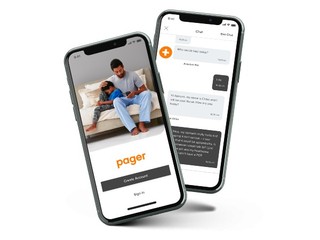
2021 is already a record breaking year for digital health funding
Funding to digital health companies surpassed $20 billion for the first time ever
 COVID has taken digital health from a growing but still niche space to the mainstream. As fast as it was growing before the pandemic, it has now turned into an absolute juggernaut.
COVID has taken digital health from a growing but still niche space to the mainstream. As fast as it was growing before the pandemic, it has now turned into an absolute juggernaut.
Case in point: 2020 was a record setting year for digital health investing, but, through the first three quarters of 2021, the space has already surpassed it in terms of both funding and deals, according to a report from Rock Health on Monday.
So far in this year, there has been over $20 billion invested across 541 deals, the first time the space ever surpassed that market; the $21.3 billion is a 45% increase from the $14.6 billion invested in all of 2020, while the number of deals rose 16% to 541. Meanwhile, the average deal size has grew 25% year-to-year.
To put a finer point on it: in the last 10 years, the amount of funding going into this space has grown nearly 2,000%, while the number of deals has grown over 480%. 
On a quarterly basis, the $6.7 billion in Q3 was actually down 18% from the $8.2 billion invested in Q2, though it was slightly higher than the $6.4 billion from Q1. That means the last two quarters were the biggest ever for digital health. Deal volume also decreased in Q3, down 24% from 223 in Q2 to 169.
The number of mega deals, meaning those over $100 million, also slowed down, from 24 in Q1 and Q2 to 15 in Q3. Those included $400 million for XtalPi, an AI platform for drug R&D; $220 million for digital clinical trials company Reify Health; $110 million for TrialSpark, another digital clinical trial cpmpany; $110 million for Maven, a provider of virtual care for women and families; a $70 million round for care coordination and communication platform Pager; and $102 million for InBrace, a personalized teeth-straightening system.
Mental health
One space that has made huge strides this year inside of digital health is femtech, or women's health, which has seen surpassed $1 billion for the first time this year, thanks to companies like Kindbody, Alpha Medical, Ro, LetsGetChecked, and TMRW all raising big rounds.
When broken by disease area, though, mental health was once again the winner, as it has been every year since at least 2018.
So far this year, there has been $3.1 billion poured into mental health startups, 34% more than the $2.3 billion invested through all of 2020. Q3 alone saw $150 million go to SonderMind, a digital health and telehealth company, and $190 million to Spring Health, which matches patients with mental health providers.
Behind mental health, there was $1.4 billion invested in cardiovascular disease, diabetes, and primary care startups. There was also $1.2 billion invested in oncology.
One space that is seeing more traction is substance abuse, which raised $793 million so far in 2020, and is now on pace to pass $1 billion by the end of the year. That includes $64 million for Quit Genius, $16 million for Lucid Lane, and $33 million for NOCD. M&A is up, IPOs are down
M&A is up, IPOs are down
While digital health companies are raising more funding, the space is also maturing, which means greater exits. Q3 was a big quarter for mergers and acquisitions, though not so big for companies choosing to go public.
There were 79 M&A deals in Q3, making it the largest quarter to date, including 33 in August, making that the biggest digital health M&A month ever. Some of the biggest deals of the quarter included the merger of Headspace and Ginger, and K Health's acquisition of Trusst.
While there were more healthcare companies going public this year than ever before (thanks, in part to the rise of SPACs) with 15 so far, compared to seven healthtech IPOs in 2019, and eight in 2020, Q3 saw a significant slowdown.
There were only three SPACs during the quarter, with Sharecare, Owlet, and Sema4, and just two IPOs: Definitive Healthcare and Cue Health.
"This is a departure from the frenzy of Q2, which had four completed SPACs, four IPOs, and seven announced SPACs. While Q3’s public exit slowdown is certainly influenced by heightened regulatory scrutiny and a general cooling of the SPAC investor craze, we’re interested to see how public exit activity continues into the final quarter of the year," wrote Rock Health.
Related News


SonderMind nets $150M as teletherapy goes mainstream

Mark Frank, CEO of SonderMind, on VatorNews podcast

Headspace Health CEO Russ Glass on VatorNews podcast






